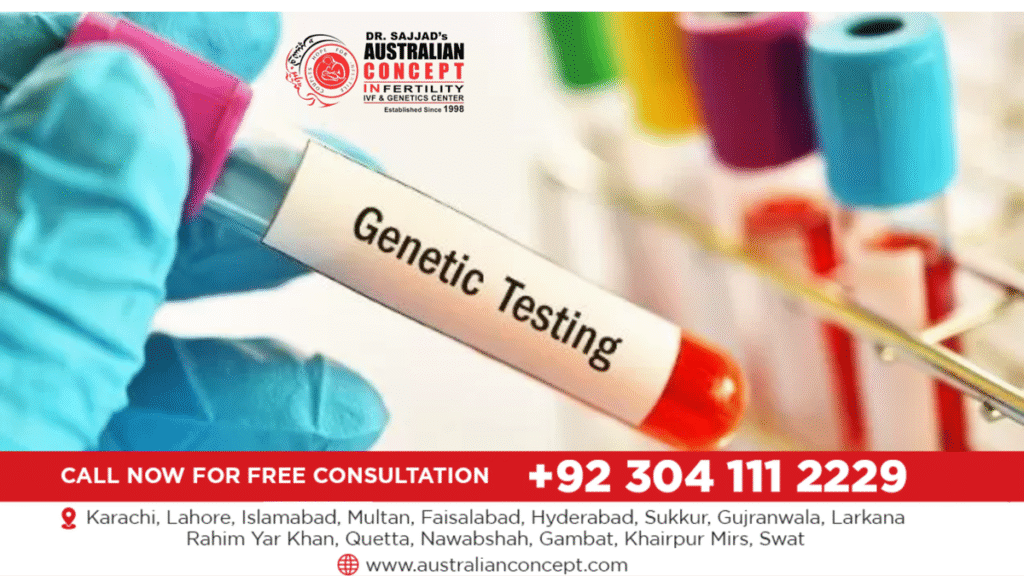Embryo genetic test in Lahore, also known as Preimplantation Genetic Testing (PGT), is an advanced technique used during IVF to assess embryos for genetic abnormalities before implantation. While it offers remarkable advantages like selecting the healthiest embryo and reducing the risk of inherited conditions patients often wonder if it carries any risks. Let’s explore the procedure, its benefits, and any possible concerns.
What Is Embryo Genetic Testing?
Embryo genetic testing is commonly used in IVF cycles to screen for:
-
PGT-A (Aneuploidy): Checks for abnormal chromosome numbers (e.g., Down syndrome).
-
PGT-M (Monogenic): Detects specific inherited disorders like thalassemia or cystic fibrosis.
-
PGT-SR (Structural Rearrangements): Screens for chromosomal translocations or inversions.
This testing is performed by biopsying a few cells from a day-5 or day-6 embryo (blastocyst) and analyzing them in a lab before transferring the embryo to the uterus.
Benefits of Embryo Genetic Testing
-
Increases IVF success rates: By selecting genetically normal embryos, the chances of implantation and live birth improve.
-
Reduces miscarriage risk: Abnormal embryos are more likely to result in failed pregnancies.
-
Helps prevent inherited conditions: Especially important for couples with a family history of genetic disorders.
-
Improves single embryo transfer decisions: Reduces the need for multiple embryo transfers, minimizing risks like multiple pregnancies.
Are There Risks Involved?
Although embryo genetic testing is widely used and generally safe, it’s not entirely without risks. Here are some concerns to be aware of:
1. Embryo Damage During Biopsy
The biopsy involves removing a few cells from the outer layer of the embryo (trophectoderm). While most embryos recover well, there’s a small chance the biopsy can damage the embryo, affecting its ability to implant or develop.
-
Risk level: Low (less than 1–2%)
-
Mitigation: Performed by experienced embryologists at reputable clinics like Australian Concept Infertility Medical Center
2. False Results or Mosaicism
Sometimes, the cells tested may not represent the entire embryo accurately. This is especially true in cases of mosaicism, where an embryo contains both normal and abnormal cells. This can lead to:
-
Discarding potentially viable embryos
-
Transferring embryos with unknown viability
3. Reduced Embryo Pool
Genetic testing may reveal that many embryos are genetically abnormal, especially in older women. This limits the number of embryos available for transfer and may require multiple IVF cycles.
4. Emotional and Financial Stress
PGT adds additional steps, costs, and waiting time to an already complex process. If many embryos are found unsuitable, couples may face disappointment and added financial burden.
5. Not All Genetic Conditions Can Be Detected
While PGT can screen for many known conditions, it doesn’t cover all genetic disorders. There’s still a small chance of having a child with an undetected condition.
6. Ethical and Moral Considerations
Some couples may face ethical dilemmas about discarding embryos or selecting based on genetic traits. Counseling may be necessary for decision-making.
When Is Genetic Testing Recommended?
Embryo genetic testing is particularly advised for:
-
Women over age 35
-
Couples with recurrent IVF failures or miscarriages
-
Known genetic conditions in one or both partners
-
Male partners with severe sperm abnormalities
-
Previous pregnancies affected by genetic disorders
Is Embryo Genetic Testing Safe?
Yes, when performed at an accredited fertility center with experienced embryologists, embryo biopsy and testing are considered safe and do not harm future development. Many children born through genetically tested embryos are healthy and thriving.
Final Thoughts
Embryo genetic testing is a powerful tool in assisted reproduction, especially for couples facing infertility due to age or genetic concerns. While the risks—such as embryo damage or limited viable embryos exist, they are rare and can be managed with expert care.
If you’re considering genetic testing, consult a fertility specialist who can evaluate your unique case and guide you. The Australian Concept Infertility Medical Center in Lahore offers advanced IVF and genetic screening services, ensuring safety, accuracy, and compassionate care throughout your fertility journey.
For More Details: https://australianconcept.com/







